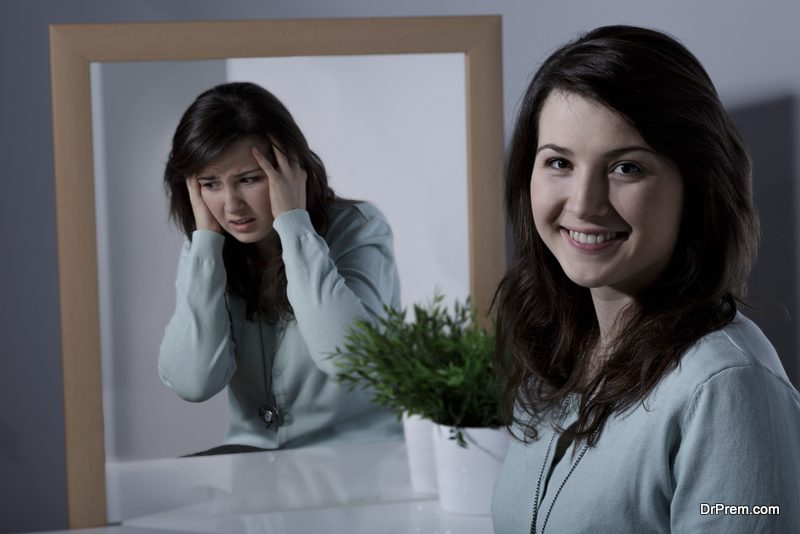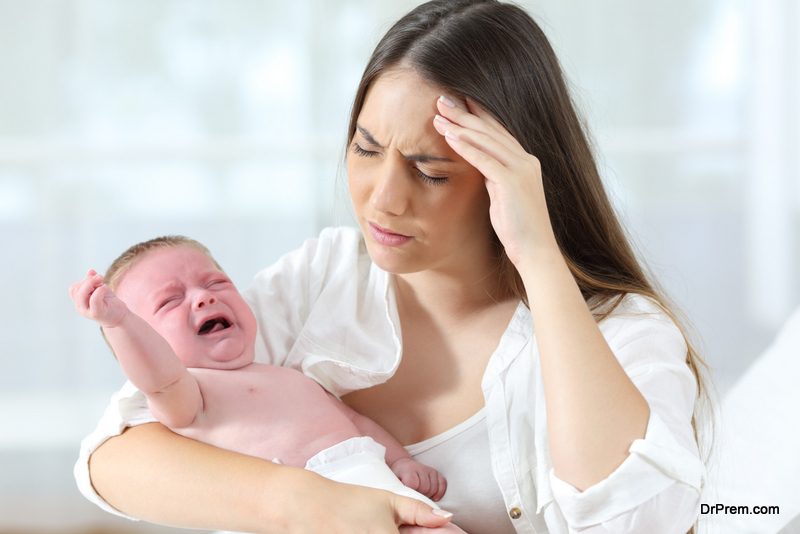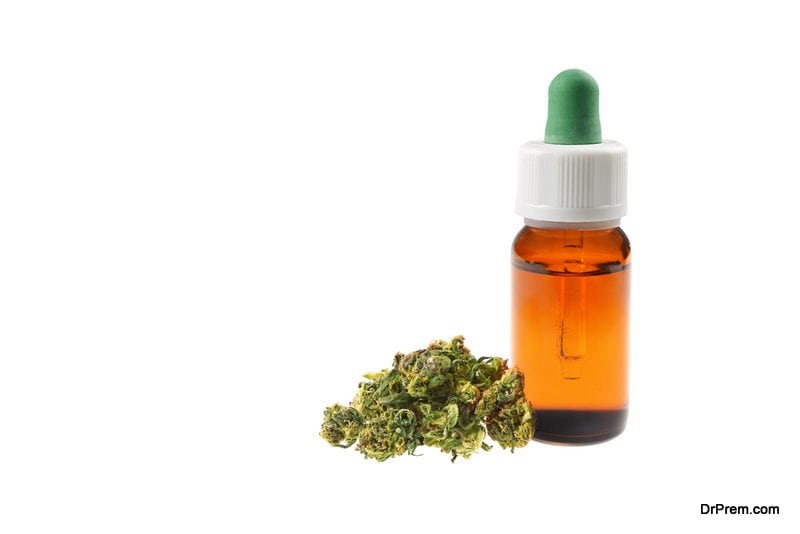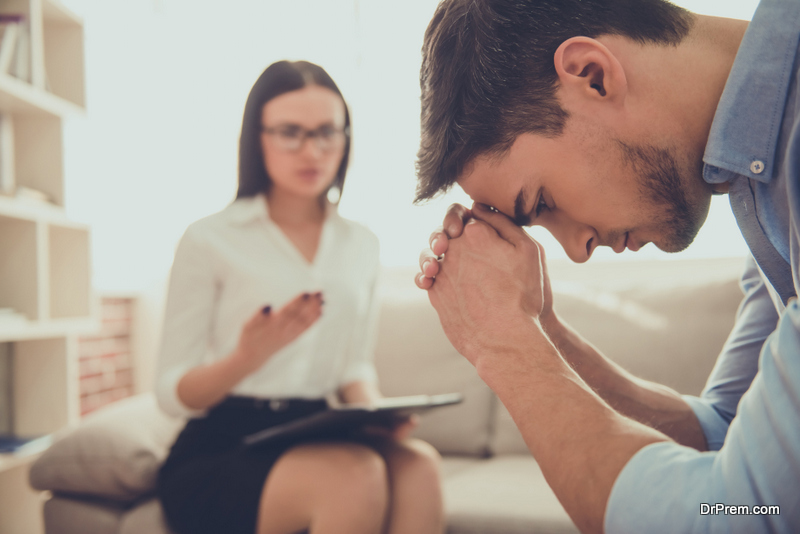Did you know that nearly 16.2 million adult Americans report having at least one major depressive episode each year? That’s over 6% of the American population, which means that depression is a fairly common occurrence and not one that’s lessening in frequency. Many adults also report being more stressed now than ever before. Finances, the overall economy, family life, and work can all lead to unhealthy stress levels and may ultimately cause depression. But there is hope for those individuals suffering from depression. If you don’t like taking medications, there are healthy and natural alternatives available.
Types of Depression
Before we discuss how to naturally treat depression, it’s important to understand that there are many different types of the disease. Depression is an overreaching label that encompasses countless disorders and circumstances. Here are some of the most commonly reported types of depression.
Bipolar
 Bipolar depression is also known as manic-depressive disorder and is marked by significant changes in one’s overall mood. Manic episodes are characterized by bursts of energy and sometimes frantic behavior. This rise in emotion is quickly followed by a downward spiral into feelings of depression or overwhelming sadness.
Bipolar depression is also known as manic-depressive disorder and is marked by significant changes in one’s overall mood. Manic episodes are characterized by bursts of energy and sometimes frantic behavior. This rise in emotion is quickly followed by a downward spiral into feelings of depression or overwhelming sadness.
Seasonal
One of the less severe types of depression, seasonal depression affects people during certain times of the year. For some individuals, the cold and dark of winter makes them feel sad, withdrawn, and unmotivated. Seasonal depression rarely occurs in the spring or summer months when the mood outdoors is generally upbeat and happy.
Postpartum
 Postpartum depression affects thousands of women following childbirth. The cause for this type of depression can be many things and often includes a severe change in hormones following childbirth, lack of sleep, and the overwhelming responsibility of caring for a newborn. While postpartum depression is fairly common (15% of new mothers report suffering from a certain level of “baby blues), if the symptoms persist or manifest into more serious ones, you should consult your doctor. More severe symptoms include loss of appetite, negative or harmful thoughts, and withdrawal from friends, family, and activities.
Postpartum depression affects thousands of women following childbirth. The cause for this type of depression can be many things and often includes a severe change in hormones following childbirth, lack of sleep, and the overwhelming responsibility of caring for a newborn. While postpartum depression is fairly common (15% of new mothers report suffering from a certain level of “baby blues), if the symptoms persist or manifest into more serious ones, you should consult your doctor. More severe symptoms include loss of appetite, negative or harmful thoughts, and withdrawal from friends, family, and activities.
Persistent
Persistent depression means exactly how it sounds. It’s chronic depression that persists on a regular basis. Some people may encounter one or two major depressive episodes in a year and never experience them again. For persistent depression sufferers, the symptoms are much more prevalent and bothersome. Although symptoms are more consistent, they’re often milder than those experienced by other types of depression. Chronic sufferers simply feel an ongoing sadness or hopelessness about life and their future.
Psychotic
 Psychotic depression is marked by hallucinations, paranoia, and delusions. These hallucinations often occur in conjunction with bipolar or major depressive disorders. Together, this disease is known as major depressive disorder with psychotic features.
Psychotic depression is marked by hallucinations, paranoia, and delusions. These hallucinations often occur in conjunction with bipolar or major depressive disorders. Together, this disease is known as major depressive disorder with psychotic features.
Natural Ways to Treat Depression
If you’ve suffered from any of the above mentioned forms of depression, you’re all too familiar with how debilitating this disease can be. But hope is here! Read on to uncover a few ways to naturally treat your depression symptoms if medication isn’t an option for you.
Establish a Routine
 One of the worst habits that depressed people get into is not setting a routine or schedule. This means getting up each morning and wandering aimlessly through your day, with no direction or purpose. Feeling as if you don’t have a purpose is enough to make anyone feel unworthy and hopeless. Start your day with a plan. Get up at the same time each morning and start by hitting the shower or enjoying a nice cup of hot coffee or tea. Make plans to see a friend, do some shopping, or another activity you enjoy. If you have a job, it will naturally force you to create a schedule and stick to it. If you’re stuck in a job that you hate, see if there are other options available. And with 85% of people reporting they hate their jobs, this could be you!
One of the worst habits that depressed people get into is not setting a routine or schedule. This means getting up each morning and wandering aimlessly through your day, with no direction or purpose. Feeling as if you don’t have a purpose is enough to make anyone feel unworthy and hopeless. Start your day with a plan. Get up at the same time each morning and start by hitting the shower or enjoying a nice cup of hot coffee or tea. Make plans to see a friend, do some shopping, or another activity you enjoy. If you have a job, it will naturally force you to create a schedule and stick to it. If you’re stuck in a job that you hate, see if there are other options available. And with 85% of people reporting they hate their jobs, this could be you!
Exercise
Exercise is proven good for both your physical and mental health. This is thanks to amazing little chemicals known as endorphins that are released during exercise. Endorphins help boost your mood and elicit feelings of happiness and relaxation. Continuing exercise for long periods of time may actually help shift your brain into a more positive place so try exercising at least 3 to 5 times a week, consistently, to see the benefits.
Improve Your Diet
 Certain foods are said to help reduce some symptoms of depression. Foods high in omega-3 fatty acids and folic acid may contain certain nutrients and minerals that help combat depressed thoughts and feelings. For some depression sufferers, food becomes a crutch. This is true for those who either overeat or don’t eat at all when feeling sad or overwhelmed. Maintaining a healthy, balanced diet can help you stay energized and establish a healthy relationship with food.
Certain foods are said to help reduce some symptoms of depression. Foods high in omega-3 fatty acids and folic acid may contain certain nutrients and minerals that help combat depressed thoughts and feelings. For some depression sufferers, food becomes a crutch. This is true for those who either overeat or don’t eat at all when feeling sad or overwhelmed. Maintaining a healthy, balanced diet can help you stay energized and establish a healthy relationship with food.
Set Realistic Goals
One of the most common feelings associated with all types of depression is hopelessness. It’s an overwhelming sense that nothing and no one can help you or that you have nothing to look forward to. By setting realistic and attainable goals for yourself, it gives you something to strive for and work towards. Once you reach your goal, you’ll feel more confident, positive, and hopeful. Be sure to set realistic goals though. Setting unattainable ones that end in failure will only leave you feeling worse about yourself and your situation.
CBD
 The use of CBD for treating depression, stress, and anxiety is growing in popularity. Because the natural herb only contains .03% of THC or less, it’s a very different substance that medical marijuana and its use is being legalized across the country. CBD helps users relax by eliciting feelings of calm and positivity. This reduces stress and can combat sadness associated with depression. If you’re interested in trying CBD, you can shop now here.
The use of CBD for treating depression, stress, and anxiety is growing in popularity. Because the natural herb only contains .03% of THC or less, it’s a very different substance that medical marijuana and its use is being legalized across the country. CBD helps users relax by eliciting feelings of calm and positivity. This reduces stress and can combat sadness associated with depression. If you’re interested in trying CBD, you can shop now here.
Ask for Help
One of the hardest things for depression sufferers to do is admit they have a problem. The next hardest step is asking for help. Don’t be afraid to reach out to family, friends, and loved ones. If you’re not comfortable admitting your condition to them, you can confide in your doctor, therapist, or another healthcare professional. These individuals are trained in treating depression and can help guide you in your journey toward recovery.
Remember that you’re not alone in your struggle with depression. Millions of Americans experience depression symptoms each year. There are countless ways to help combat these feelings from medication and therapy to some of these natural remedies. The hardest part is starting. But once you do, you’ll be thankful you did.
Article Submitted By Community Writer




